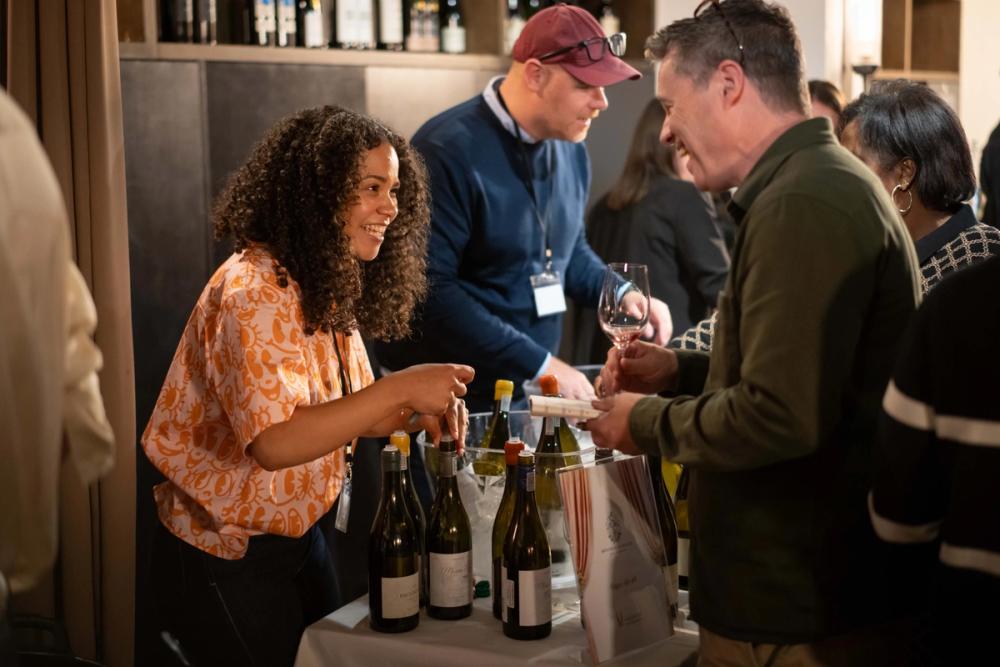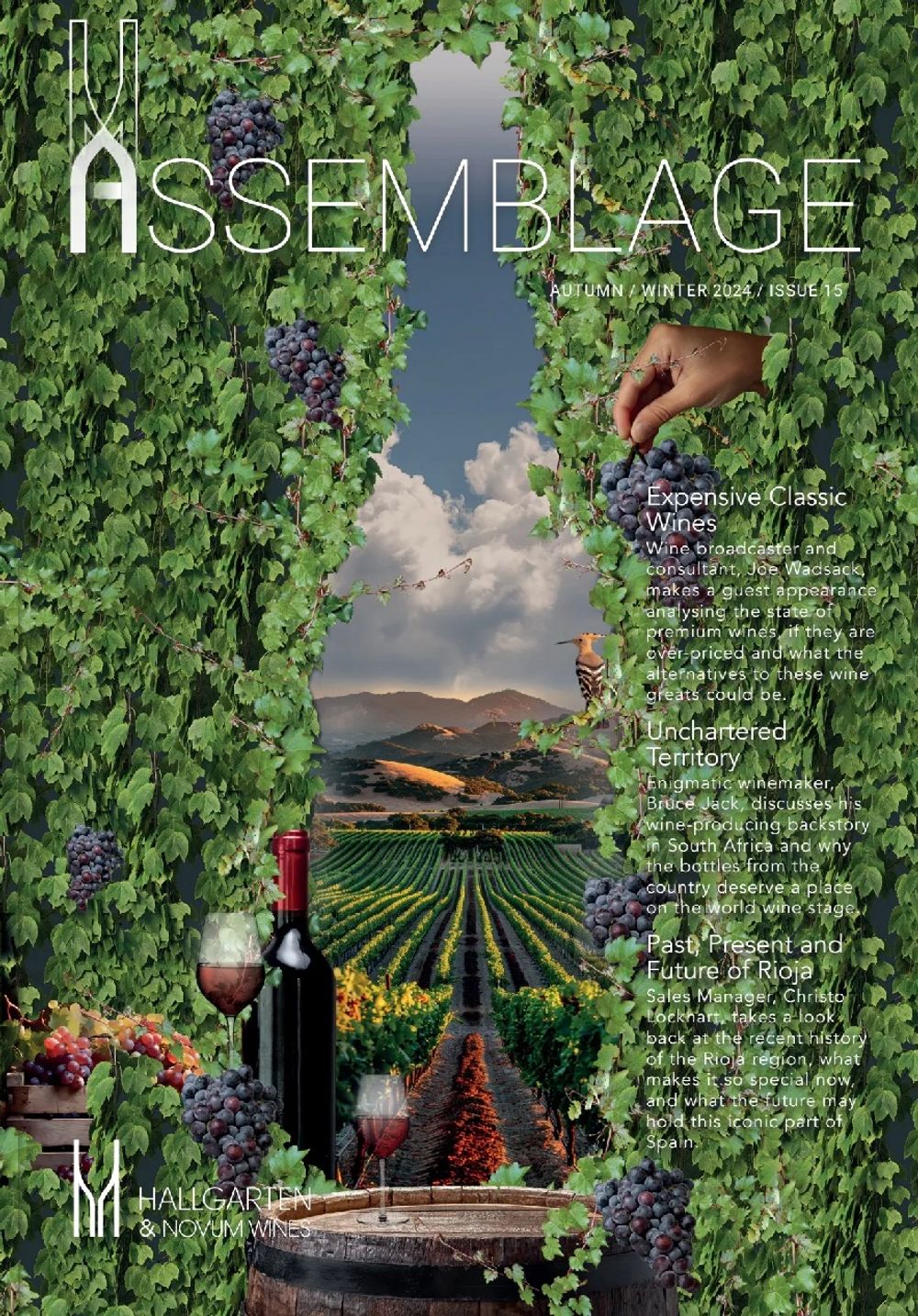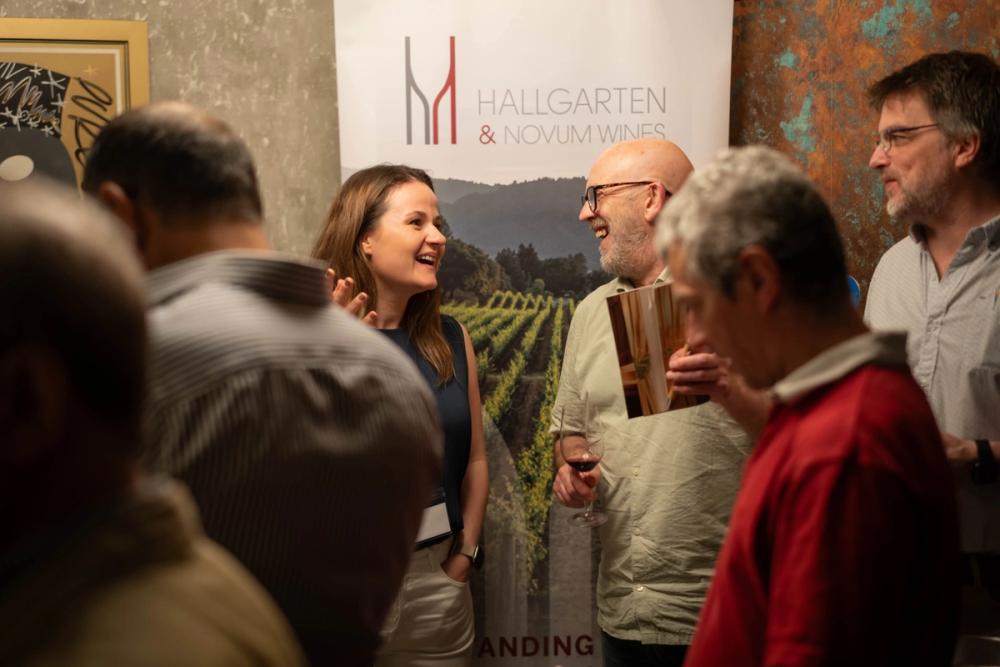As a wine importer you are looking to bring in new producers to your range all the time - but it must be a delicate balance as another producer might mean another winery gets less attention. How do you tackle and address that balance?
Hallgarten & Novum Wines is in an extremely unique and fortunate phase of its evolution, having been acquired by Coterie Holdings in December 2023. With an incredibly long-standing existing portfolio, we are now turning our attention to broadening the breadth and depth of the range to ensure that each of our customers’ requirements are met in terms of quality, style, and price, and are in line with our growth channels. The next few years represent a very exciting period of opportunity for both existing and potential new suppliers.
What criteria do you take into account when taking on a new producer and their wines?

Andrew Shaw says it is vital the buying teams within Coterie Holdings work with its other key departments - particularly sales - in determining the gaps and opportunities there might be to introduce new wines and producers
Inevitably a number of factors are considered but quality remains a non-negotiable when it comes to our portfolio. Coupled to this, it is important to work with suppliers who complement our existing supply base with the right ownership structure, sustainability practices and ethos, alongside long-term ambitions for the UK market.
What is the average length of time it takes from initial talks and tastings to actually listing and selling wine into the trade?
Timings tend to be relatively short. We are always clear with our producers from the outset on our wider strategic business ambitions, and which suppliers and categories will offer the greatest opportunity to deliver them . It helps not to waste anyone’s time.
Will you look to take on all their wines - or have a strategy in terms of how many wines from a new producer you are willing to take on?
Focus is critical in distribution; there is no fixed criteria or number of wines per supplier that we aim to take on, it all depends on channel breadth and the strategy behind bringing each new producer. Most suppliers also value our input from a distributor perspective as to which wines will work, and how to strategically target their key lines and ensure they are sold into the right channels.
Is it a case of scaling it up - try with one or two wines, and then build up the range?
Yes, in our experience it is better to grow your portfolio over time, rather than starting with too many wine and reducing them over time – though understandably, this is not always what the supplier wants to hear.
You also need to have your customers on board and willing to introduce new wines and producers - how do you manage that and how do you communicate with customers to get an idea of how interested they are in listing more wines from you?

Andrew Shaw says the national and regional tastings it holds are vital in talking to their customers across the on and off-trades and listening to what they are looking for
First and foremost, we are very fortunate to have a highly talented and trained sales team, looking after both the off and on-trade – they often act as our eyes and ears on the ground interacting with our customer base. We have regular internal forums to review new listings, and a team committee focussed explicitly on carrying out these reviews, as well frequent quality control within our buying department.
Equally, our role as importers and distributors is to lead and pioneer new categories in the trade. Greece is notably the most famous region that Hallgarten & Novum specialises in and that we have spearheaded. South Africa is also becoming an exciting new focus due to the incredible diversity of styles, regionality, quality and value for money that it offers, as well as a strong focus on sustainability amongst its producers.
If your customers take on a new producer, do you have to accept that might mean they stop buying wines from another one of your producers?
It is always a possibility. We need to keep consumers stimulated and excited with new releases and producers, and there is so much to offer in terms of the diversity in our range. What’s more, producers are constantly innovating at the wineries in-line with evolving consumer tastes and demands, so it’s important for our customers to stay relevant with different consumer demands.
Our dedicated brand management team also plays an important role in managing these important producer relationships, and they work closely with our sales team across the country to promote all of our producers with their best interests at heart.
Do you use promotions and reduced pricing etc in order to introduce them to your customers? If not, what works best to introduce a new producer to your customers and the wider trade?
We run a series of activities throughout the year that helps promote wines from new producers, some of them are price related such as ‘By the Glass’ support to promote sales of wine by the glass aimed at the on-trade.

Hallgarten is able to use its Assemblage customer magazine to introduce and talk about new wines and producers and where they might fit into customers' lists
For the off-trade, we produce three copies each year of our wine-focused magazine, Assemblage, which feature up to 50 wines in each issue available to wine merchants at promotional prices, always with a dedicated section on new producers to the portfolio.
We use every tool available to get new producers in-front of our customers. It can include customer trips to the producers, winemaker activations in the UK, press activity and focused tastings such as our Greek or Italian Roadshows.
We always use our autumn regional tastings as an opportunity to introduce new producers to market. We recently showcased over 15 of our new producers at our recent Grape Unveiling regional tastings in London, Cambridge, and Glasgow, with over 500 customers in attendance across the three events.
We are now getting ready for the annual tasting in January 2025 where we will be showing them alongside existing producers, with a large portion of our portfolio being available to taste across the two days.
Is it harder to take on a new producer in terms of taking a risk - with all the extra admin, duty and associated costs? Do you have to make sure you are on to a winner from the off?
The key consideration when taking on a new supplier is that it’s for the long term; that we can have a lasting relationship with them and that commercially, they fit into our portfolio. Of course, the cost of administering a supplier in and out of the portfolio is significant, but given the experience and expertise of our buying and sales teams, coupled with the longer term ambitions of our business, we are confident in the knowledge of our portfolio.
What constitutes success and how do you define success?

Andrew Shaw says success in producer and distributor relationships can be measured more in building a long term partnership than quick wines and sales
Success is based on a number of different factors. ‘Success’ is a collaborative target set in agreement with the supplier – our role as distributors is to represent the supplier in theirs, and our, best interests.
Success is also increasingly seen as a business partnership with customers, too – these partnerships do not relate only to volume or value, but more about placement in the right accounts, activations with the correct standard of professionalism and passion, and working closely with key customers to develop long term relationships.
How long do you take before deciding if a new producer and their wines are working in the trade?
It is a constant process of evaluating and collaborating with suppliers whilst keeping our shared goals in mind. The relationship starts before a supplier is listed and before information is shared to support the joint ambitions of the two parties. When acting as a distributor, we aim to be as transparent as possible there should be no surprises to either party.
* You can find out more about Coterie Holdings and how it works at its website here.
* Hallgarten & Novum Wines is a commercial partner to The Buyer. Click here to find our more.






























